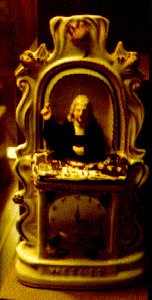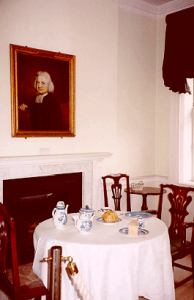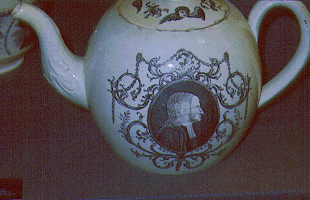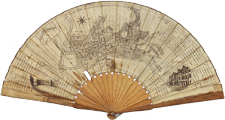Cultural life
Due to its determination to distinguish itself from Anglicanism, although it did not want to separate from the Church of England, the Methodist movement invented a new idiosyncratic kind of poetry and liturgy : Hymns.
In the same way, new chapels were eventually built for the movement, first in Bristol (1739), then in Bath (1759), in Edinburgh (1765-6) and finally in London (1777).
In another connection, a tradition of popular art
Methodist popular art
Methodism quickly gave rise to a tradition of popular art, often reproducing portraits of John Wesley, some of which date from his lifetime, such as a teapot. It is probably not irrelevant that Wesley’s portrait should thus appear on a teapot: the Methodists attempted to fight alcoholism and to promote temperance.
Contrary to the radically Protestant legacy which it claimed, the Methodist people felt it necessary to have their surroundings decorated with images of the founder. The habit survived throughout the 19th century, when numerous earthenware statues of Wesley were used to decorate mantlepieces (1875).

- Teapot
- By permision of the Trustees of Wesley’s Chapel, City Road, London
[click on the picture to enlarge it]

- Wesley’s house, with tea served.
- By permision of the Trustees of Wesley’s Chapel, City Road, London
[click on the picture to enlarge it]

- Tea
- By permision of the Trustees of Wesley’s Chapel, City Road, London
[click on the picture to enlarge it]

